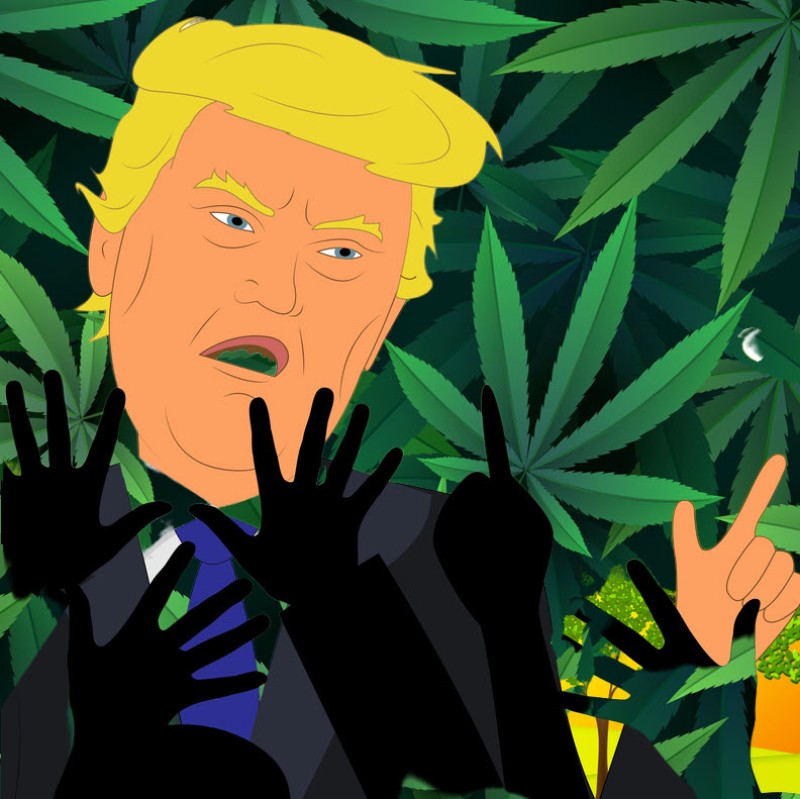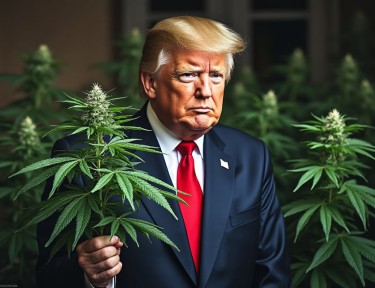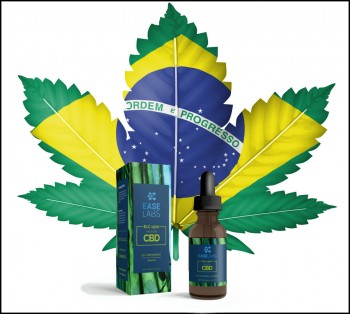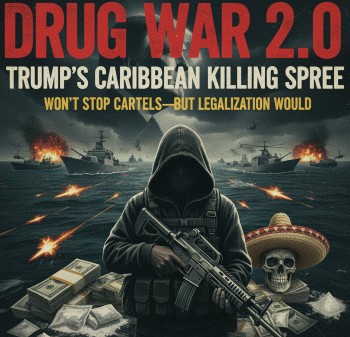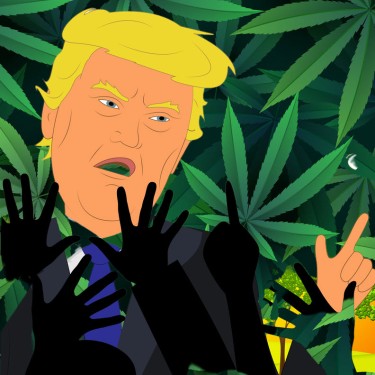
President Donald Trump has reignited the debate over cannabis policy in Washington, D.C., by linking marijuana decriminalization to rising disorder in the nation’s capital. On March 27, 2025, Trump signed an executive order titled “Making the District of Columbia Safe and Beautiful,” which aims to address crime, public safety, and urban decay through enhanced law enforcement and beautification efforts. The accompanying White House fact sheet specifically criticized D.C.’s cannabis decriminalization policy as a “failed” approach that has contributed to public disorder.
This development marks a significant moment in Trump’s second term, as his administration takes a hardline stance on urban governance while navigating the complex intersection of federal and local cannabis laws.
Cannabis Decriminalization Under Fire
The White House fact sheet accompanying the executive order explicitly cited marijuana decriminalization as one of several policies that have allegedly “opened the door to disorder” in Washington, D.C. According to the administration, these policies have emboldened criminals and undermined public safety. Other criticized measures include the district’s abandonment of pre-trial detention practices and lenient enforcement against rioters and vandals.
While cannabis possession and personal cultivation are legal in D.C. under a voter-approved initiative from 2014, commercial sales remain prohibited due to a congressional rider that prevents the district from using local funds to regulate recreational cannabis markets. This legislative barrier has left D.C. with an incomplete legalization framework, often referred to as “decriminalization.”
Prohibitionist groups such as Smart Approaches to Marijuana (SAM) have praised Trump’s executive order, claiming that D.C.’s cannabis policies have led to “total legalization” and widespread public consumption. However, critics argue that these claims are misleading, as regulated cannabis sales remain illegal in the district.
The D.C. Safe and Beautiful Task Force
-
Trump’s executive order established the “D.C. Safe and Beautiful Task Force,” a multi-agency initiative designed to revitalize Washington, D.C., through increased law enforcement presence and urban beautification projects. Key objectives of the task force include:
-
Enhanced Law Enforcement: Federal agencies will collaborate with local police to deploy more officers in public areas. The focus will be on enforcing quality-of-life laws related to drug use, vandalism, fare evasion, and public intoxication.
-
Immigration Enforcement: The task force will prioritize apprehending undocumented immigrants deemed dangerous while monitoring D.C.’s compliance with federal immigration laws.
-
Support for Local Police: Assistance will be provided to the Metropolitan Police Department (MPD) for recruiting officers and improving forensic capabilities. MPD currently faces staffing shortages with fewer than 3,500 officers out of a required 4,000.
-
Beautification Projects: Federal agencies will lead efforts to restore monuments, remove graffiti, clear homeless encampments from federal lands, and maintain cleanliness across public spaces.
-
The administration claims these measures will restore order and improve quality of life for residents and visitors alike.
Political Context
Trump’s criticism of cannabis decriminalization in D.C. contrasts sharply with his previous support for states’ rights on marijuana policy during his first term. In recent years, Trump has endorsed measures such as reclassifying marijuana under federal law and supporting banking reforms for state-regulated cannabis businesses. However, his administration’s linkage of decriminalization policies to crime signals a shift toward a tougher stance on urban drug enforcement.
This move also aligns with Trump’s broader campaign rhetoric emphasizing law and order. In February 2025, he proposed revoking D.C.’s home rule authority due to what he described as “failed policies.” Critics argue that such measures undermine local autonomy and disenfranchise D.C.’s residents.
Delegate Eleanor Holmes Norton called the executive order “insulting,” highlighting that it excludes local officials from decision-making processes while imposing federal oversight.
Political Context
Trump’s criticism of cannabis decriminalization in D.C. contrasts sharply with his previous support for states’ rights on marijuana policy during his first term. In recent years, Trump has endorsed measures such as reclassifying marijuana under federal law and supporting banking reforms for state-regulated cannabis businesses. However, his administration’s linkage of decriminalization policies to crime signals a shift toward a tougher stance on urban drug enforcement.
This move also aligns with Trump’s broader campaign rhetoric emphasizing law and order. In February 2025, he proposed revoking D.C.’s home rule authority due to what he described as “failed policies.” Critics argue that such measures undermine local autonomy and disenfranchise D.C.’s residents.
Delegate Eleanor Holmes Norton called the executive order “insulting,” highlighting that it excludes local officials from decision-making processes while imposing federal oversight.
Impact on Cannabis Reform
The executive order has raised concerns among cannabis advocates about its implications for reform efforts in D.C. While Trump has previously expressed support for rescheduling marijuana from Schedule I to Schedule III under federal law—a move that would facilitate research and reduce tax burdens for cannabis companies—his administration’s criticism of decriminalization policies sends mixed signals about its commitment to meaningful reform.
Advocates worry that increased law enforcement presence could lead to over-policing and racial profiling in communities of color. Historically, drug enforcement policies have disproportionately targeted marginalized groups—a concern amplified by the task force’s mandate.
Despite these challenges, some industry stakeholders remain hopeful that Trump will pursue reforms such as cannabis banking access during his second term. However, linking marijuana decriminalization to disorderly behavior dampens optimism about broader legalization efforts under his administration.
Broader Implications
Trump’s executive order reflects ongoing tensions between federal authority and local governance in Washington, D.C., where Congress retains oversight over district laws despite residents lacking voting representation at the federal level. This dynamic complicates efforts to align local cannabis policies with voter preferences while addressing public safety concerns raised by federal officials.
As debates over cannabis legalization continue nationwide—including Trump’s endorsement of Florida’s Amendment 3 ballot measure supporting recreational use—the situation in D.C. underscores the complexities of navigating reform within a federally controlled jurisdiction.
Moving forward, policymakers must balance respect for local autonomy with effective governance strategies that address crime without disproportionately impacting vulnerable communities. Whether Trump’s task force achieves its stated goals or exacerbates existing challengConclusion
President Donald Trump’s decision to link cannabis decriminalization in Washington, D.C., to rising disorder represents a pivotal moment in U.S. drug policy debates. By establishing the D.C. Safe and Beautiful Task Force, his administration seeks to address urban decay through enhanced law enforcement and beautification initiatives while criticizing local governance practices.
However, this approach raises questions about fairness, equity, and long-term implications for cannabis reform both within D.C. and across the nation. As advocates push for meaningful change—including rescheduling marijuana under federal law—the tension between prohibitionist rhetoric and reformist aspirations continues to shape America’s evolving relationship with cannabis legalization.

